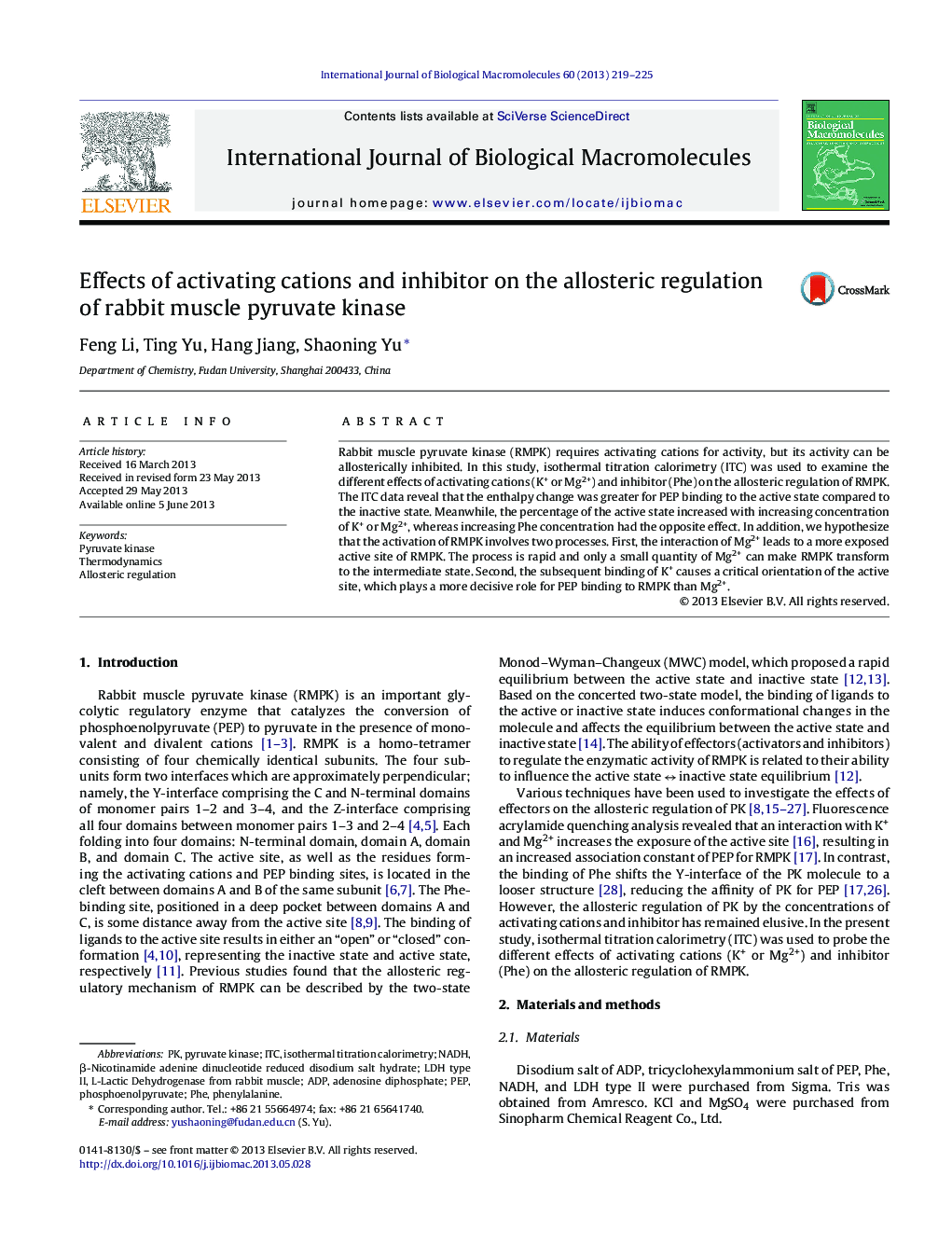| Article ID | Journal | Published Year | Pages | File Type |
|---|---|---|---|---|
| 8333278 | International Journal of Biological Macromolecules | 2013 | 7 Pages |
Abstract
Rabbit muscle pyruvate kinase (RMPK) requires activating cations for activity, but its activity can be allosterically inhibited. In this study, isothermal titration calorimetry (ITC) was used to examine the different effects of activating cations (K+ or Mg2+) and inhibitor (Phe) on the allosteric regulation of RMPK. The ITC data reveal that the enthalpy change was greater for PEP binding to the active state compared to the inactive state. Meanwhile, the percentage of the active state increased with increasing concentration of K+ or Mg2+, whereas increasing Phe concentration had the opposite effect. In addition, we hypothesize that the activation of RMPK involves two processes. First, the interaction of Mg2+ leads to a more exposed active site of RMPK. The process is rapid and only a small quantity of Mg2+ can make RMPK transform to the intermediate state. Second, the subsequent binding of K+ causes a critical orientation of the active site, which plays a more decisive role for PEP binding to RMPK than Mg2+.
Keywords
Related Topics
Life Sciences
Biochemistry, Genetics and Molecular Biology
Biochemistry
Authors
Feng Li, Ting Yu, Hang Jiang, Shaoning Yu,
